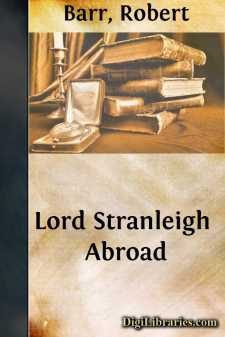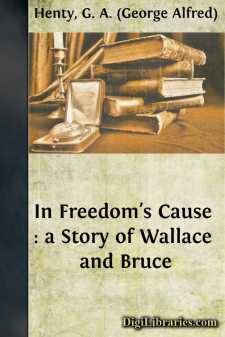Categories
- Antiques & Collectibles 13
- Architecture 36
- Art 48
- Bibles 22
- Biography & Autobiography 813
- Body, Mind & Spirit 142
- Business & Economics 28
- Children's Books 17
- Children's Fiction 14
- Computers 4
- Cooking 94
- Crafts & Hobbies 4
- Drama 346
- Education 46
- Family & Relationships 57
- Fiction 11829
- Games 19
- Gardening 17
- Health & Fitness 34
- History 1377
- House & Home 1
- Humor 147
- Juvenile Fiction 1873
- Juvenile Nonfiction 202
- Language Arts & Disciplines 88
- Law 16
- Literary Collections 686
- Literary Criticism 179
- Mathematics 13
- Medical 41
- Music 40
- Nature 179
- Non-Classifiable 1768
- Performing Arts 7
- Periodicals 1453
- Philosophy 64
- Photography 2
- Poetry 896
- Political Science 203
- Psychology 42
- Reference 154
- Religion 513
- Science 126
- Self-Help 84
- Social Science 81
- Sports & Recreation 34
- Study Aids 3
- Technology & Engineering 59
- Transportation 23
- Travel 463
- True Crime 29
Sort by:
by:
Henry M. Neil
During the Civil War artillery projectiles were divided as to structure into solid, hollow and case shot. The solid shot were intended to batter down walls or heavy obstructions. Hollow projectiles, called shell and shrapnel, were for use against animate objects; to set fire to buildings and destroy lighter obstructions. Under the head of case shot we had grape and canister. Grape shot is no longer...
more...
CHAPTER I. Who art thou, fair one, who usurp'st the place Of Blanch, the lady of the matchless grace?—LAMB. IT was towards the evening of a day in early April that two ladies were seated by the open windows of a cottage in Devonshire. The lawn before them was gay with evergreens, relieved by the first few flowers and fresh turf of the reviving spring; and at a distance, through an opening...
more...
by:
Robert Barr
I.—LORD STRANLEIGH ALL AT SEA. A few minutes before noon on a hot summer day, Edmund Trevelyan walked up the gang-plank of the steamship, at that moment the largest Atlantic liner afloat. Exactly at the stroke of twelve she would leave Southampton for Cherbourg, then proceed across to Queenstown, and finally would make a bee-line west for New York. Trevelyan was costumed in rough tweed of subdued...
more...
Chapter I The village of Glen Cairn was situated in a valley in the broken country lying to the west of the Pentland Hills, some fifteen miles north of the town of Lanark, and the country around it was wild and picturesque. The villagers for the most part knew little of the world beyond their own valley, although a few had occasionally paid visits to Glasgow, which lay as far to the west as Lanark was...
more...
by:
Walter Scott
INTRODUCTION The Novel or Romance of Waverley made its way to the public slowly, of course, at first, but afterwards with such accumulating popularity as to encourage the Author to a second attempt. He looked about for a name and a subject; and the manner in which the novels were composed cannot be better illustrated than by reciting the simple narrative on which Guy Mannering was originally founded;...
more...
What they called me, that was what started it. I'm as good an American as the next fellow, and maybe a little bit better than men like that, big men drinking in a bar who can't find anything better to do than to spit on a man and call him Mex. As if a Mexican is something to hide or to be ashamed of. We have our own heroes and our own strength and we don't have to bend down to men like...
more...
In the year 1785, a young and beautiful woman, whose dress and features bespoke her to be a native of Spain, was observed a few miles beyond Ponteland, on the road which leads to Rothbury. She appeared faint and weary; dimness was deepening over the lustre of her dark eyes, and their glance bespoke anxious misery. Her raiment was of the finest silk; but time had caused its colour to fade; and it hung...
more...
WHITE ASHES CHAPTER I On the top floor of one of the lesser office buildings in the insurance district of lower New York, a man stood silent before a map desk on which was laid an opened map of the burned city. No other man was in the office, for this was on a Sunday; but it would not have mattered to the man at the map had the big room presented its usual busy appearance. All that went on about him...
more...
I had arrived at Inley Abbey that afternoon, and was sitting at dinner with Inley and his pretty wife, whom I had not seen for five years, since the day I was his best man, when we all heard faintly the tolling of a church bell. Lady Inley shook her shoulders in a rather exaggerated shudder. "Someone dead!" said her husband. "It's a mistake to build a church in the grounds of a...
more...
by:
Herman Melville
CHAPTER I Maramma We were now voyaging straight for Maramma; where lived and reigned, in mystery, the High Pontiff of the adjoining isles: prince, priest, and god, in his own proper person: great lord paramount over many kings in Mardi; his hands full of scepters and crosiers. Soon, rounding a lofty and insulated shore, the great central peak of the island came in sight; domineering over the...
more...











